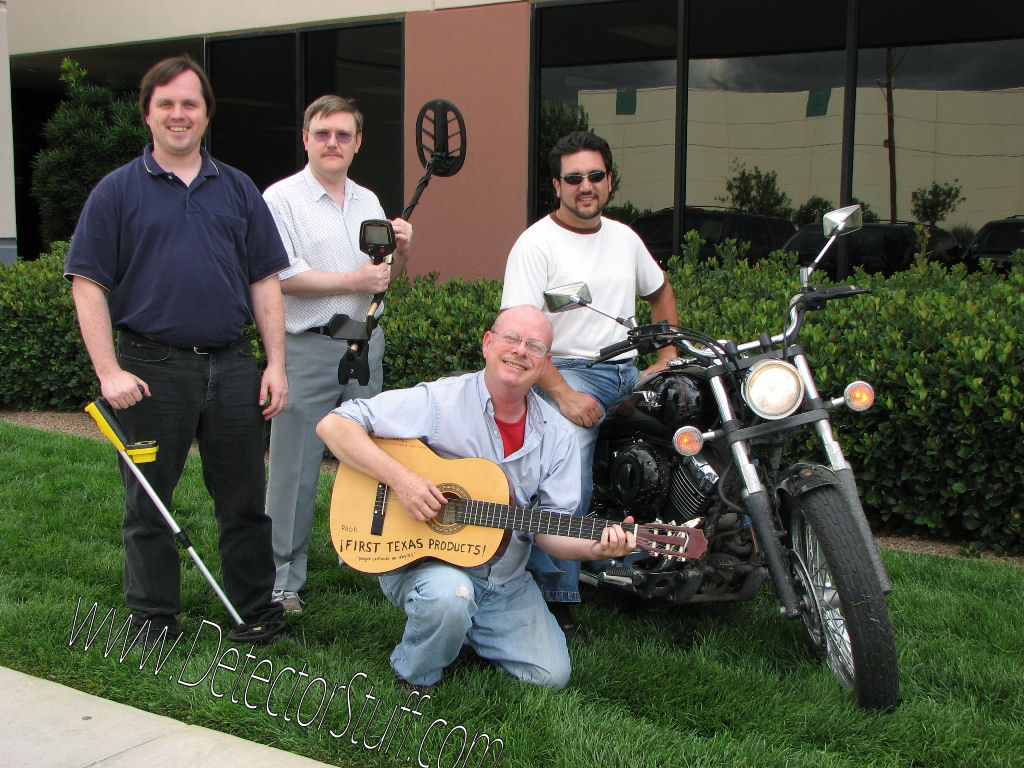Most search coils are submersible. All of those manufactured by Garrett can be submerged to the connector, but always check with the manufacturer when uncertain. Be careful of water in the detector stem since not all units have a plug to prevent water from running into the control housing. To be safe, immediately after using a detector in water, drain the lower stem. IF water is not drained, it may flood the instrument the first time the search coil is placed higher than the control box.
For greatest success on the beach always use headphones. Of course, most veteran treasure hunters use headphones no matter where they are searching. They are especially necessary on the beach where wind, surf and “people” notice will mask detector signals and cause many good targets to be missed. Any type headphone is better than none at all, but the best are those with ear cushions and adjustable volume controls. Coiled cords are recommended along with right-angle plugs.
Since large cushioned headphones can become hot and uncomfortable, smaller versions are available. Even though these light models with smaller ear coverings mask out less noise interference, they can be used effectively.
Since almost any kind of digger can be used in loose beach sand, many beginners overlook the importance of a digging tool. Why, some even use their hands! I strongly counsel against this for several reasons-first and foremost being the abundance of broken glass. In fact, I strongly recommend gloves, at least for the hand that does any digging.
Another reason for not depending upon hands as a digging tool is that the beach hunter cannot always expect to find targets in soft beach sand. I prefer two types of diggers: a heavy-duty garden trowel and a light-weight pick with a flat blade on one end. Just a quick whack with the pick, and I usually have my treasure. Of course, pinpointing is essential before digging is attempted. The hobbyist should begin with a trowel or small shovel and graduate to a pick-type digger with a long handle when pinpointing improves. The long handle permits uncovering targets without having to kneel on the ground.
Scoops are reasonably good in dry, loose sand. A quick scoop, a few shakes and there’s the find. In wet sand, however, scoops are just a waste of time. It takes too long to work damp sand out of a scoop, except in the water where onrushing surf can help clean wet sand from the scoop.
Occasionally, a strong, thin digger-like screwdriver is needed. A good percentage of my finds are buried in roots beneath trees and tree stumps. Digging can become difficult within a complicated root structure, and a strong, thin rod is needed to loosen the soil and make a hole from which the find can be recovered.
And speaking of holes, let’s talk about them. Some treasure hunters leave the holes they dig. Don’t you! Always, without exception, fill every hole you dig. It doesn’t take much time, and you are doing it for the sake of our hobby. Plus, you don’t want someone to step in one of your holes and twist an ankle. I have filled so many holes that I do it automatically. Even in deserted mountainous and desert areas, I kick dirt into the holes I dig.
Other gear needed for beach hunting includes an assortment of pouches, a secure pocket for storing especially good finds and a pocket for storing especially good finds and a place for personal items. If you’ve hunted for treasure at all, you probably already have some ideas about recovery pouches. Let me offer just a couple of suggestions for the beach:
- Place all detected items in a pouch; carefully inspect your finds occasionally and discard trash properly.
- When I find an especially valuable article, I return to my vehicle or camp to stow it properly.
- Use care in handling rings with stones. Often, mountings corrode during exposure. Examine jewelry with your pocket magnifier; when a mounting shows corrosion, handle that ring with extra caution.
- A fastener on a pouch is not a necessity on the beach unless you lay your pouch down carelessly or let it bounce around in your car.
- Pouches should be waterproof to prevent soiling your clothes and sturdy enough to hold plenty of weight.
Many pouch styles can be mounted on a belt. I often wear a web-type belt carrying a canteen and an extra pouch or two.
Concerning clothing, the best advice is to dress comfortably. But, protect yourself against the elements you’re sure to encounter on the beach. Obviously, you’ll want to keep warm in the winter and cool in the summer, but I caution you to shade exposed skin areas to protect against sun and windburn. In warm weather I wear shorts or lightweight trousers, a light (but long-sleeved) shirt, socks and comfortable shoes or sneakers. I wear a wide-brimmed cotton hat with some sort of neck shield. Even when hunting only on the beach, I’m always prepared to get wet. Sometimes an attractive low place in the sand will be yielding recoveries, and I must be prepared to follow it right into the water.

